- Home
- Helen Dunmore
Betrayal Page 6
Betrayal Read online
Page 6
‘In a while. We’re just going to have a look at Gorya’s leg first.’
Carefully, he lifts the bedcovers off the cage, and draws them to the foot of the bed. He lifts the cage away, and puts it on the floor. The boy is wearing expensive dark blue pyjamas, but the right leg of them has been cut off at the thigh.
‘Mum did that,’ says Gorya, with a trace of animation. ‘She got the scissors and cut right through the leg of all my pyjamas, because they were hurting me.’
‘Were they?’
He can see the swelling on the tibia, just below the knee joint. He touches the child’s skin gently. The swelling feels warm. ‘This is where it hurts?’
‘It’s where Vanka whacked me.’
‘Very clumsy … How long ago was that?’
‘I can’t remember.’
‘It’s still tender … and quite red, too. Has it been that colour for long?’
‘I don’t remember.’
‘You know, Gorya, a machine can tell you that something’s wrong by overheating or simply by failing to work any more. But your body works differently. It will give you clues, and sometimes they are quite hard to read. So a doctor has to understand the design but he also has to be a detective. You see this redness and swelling?’
‘Yes.’ Gorya barely glances. He’s dropped the screwdriver and his hands are balled into fists. It’s hurting.
‘Look just here. Don’t worry, it’s still your own leg, the same as always.’ Slowly, reluctantly, Gorya lets his gaze drop below his knee. ‘There,’ Andrei continues, ‘that swelling tells us there’s something wrong. Maybe it’s been caused by the blow from your friend Vanka’s racket; maybe it’s something else. It’s our job to find out, so we can try to make it better. A detective has to search for every clue. Perhaps you’ll be able to remember things that will help us.’
His fingers gently trace the outline of the swelling. He glances up at Lyuba. Her arms are folded and she’s watching intently, frowning.
‘It’s been like this for a while, hasn’t it, Gorya? It’s been hurting you like this, but perhaps no one else noticed? And maybe you’ve been a bit tired and sometimes you’ve been limping, even though you haven’t fallen over?’ murmurs Andrei, not looking at the boy’s face. As if unconsciously, Gorya nods his agreement. ‘But have you got this type of pain anywhere else?’
‘No.’
‘Not in the other leg? Good. Not in your back or your shoulders?’
‘Not anywhere. It wouldn’t be, because Vanka only whacked me here.’
‘That’s true. Move your arms for me, forward and back, like this. That’s right. Now, try to think back, Gorya. Have you had pain and swelling like this anywhere else in your body that you remember? Not in the last few months, maybe, but any other time?’
‘I told you, it’s only where I got hit.’
‘Good, you’ve got an excellent memory. There, that’s enough. Let’s put this cage back over your leg, and then we can drape the bedclothes back. It’s surprising how you can get chilly when you’re lying in bed, even in a warm room. We’ll be doing an X-ray, Gorya – you know what that is? You’ve had one before?’
‘Yes, it’s a picture of my bones, the X-rays make them show,’ says the child, so glibly that Andrei knows Lena was right. Russov has already had X-rays done, and has disposed of them rather than adding them to Gorya’s file. He must keep his temper. Children are so quick to spot anger, and think that it’s directed against them.
‘Fine, Gorya, we’ll do X-rays, and Nurse Osipova here will take some blood so that we can do tests on that. None of it will hurt more than a little, but the problem is that your leg hurts when you move it, doesn’t it – and we shall have to take you to the Radiology Department to do the X-rays.’
‘How do you know it hurts when I move?’
‘You keep it so still. We’ll bring a wheelchair, and Nurse Osipova will help you. She’s very strong.’ And no doubt that policeman will come traipsing after us, all the way to the door of the Radiology Department. Russov must have calculated that the policeman didn’t matter; he wouldn’t have the medical knowledge to see anything wrong with doing two sets of X-rays. But the name Russov will already be in the police file; didn’t he understand that?
Gorya looks at Lyuba’s broad forearms. His body has relaxed slightly. He is beginning to trust these people to look after him.
‘So will my leg be better in time for pre-season training?’
‘I hope so. That’s what we all want. But at this point I can’t say yes or no, Gorya, because I haven’t got the evidence.’
The boy sniffs loudly. He’s looking straight at Andrei now, taking in everything. Lyuba has turned away and is washing her hands at the corner basin in preparation for taking the bloods. Andrei can tell from the vigorous splashing and scrubbing that there’s a lot she’d like to say.
‘My dad’ll be angry if I’m not better by then. He wants me to be in the under-elevens first team this year.’
‘Is that what you want, too?’
‘Course it is. It’s what everyone wants. Vanka won’t get in though, he’s not fit enough. He could be, but he hasn’t got the commitment. Dad takes me to training every Saturday morning, or if he can’t our chauffeur does. Even if you miss a week it affects your fitness. I run, too. My dad’s made a running track at our dacha.’
Andrei nods. Some patients give way to hospital life almost at once, others fight it every step of the way, insisting that really they still belong to the world outside. They can’t be ill, because they haven’t got time. Besides, they’re going to a wedding next weekend, or they’re expecting a promotion. Don’t you understand, doctor, I’m not a patient like all the rest. Children cling to what was going to happen on the day they got ill. That cinema trip hasn’t been abandoned, it’s just been postponed. Even months later, when the programme has changed dozens of times, they keep on asking.
Normal life is where Gorya knows that he belongs. Privileged, extraordinary, normal life, with a running track at the dacha and a car to take him to football training. Poor kid.
‘You know you said I limp?’ says Gorya.
‘Yes?’
‘Well, I don’t. Only when I forget. Dad’s never even noticed.’
‘You don’t want him to know.’
‘No. He’ll be –’ But whatever it is that Volkov will be, Gorya can’t quite get it out. Perhaps he’s afraid of his father, like everyone else. Andrei just nods, as if nothing Gorya might say could surprise him. The boy shifts a little, and Andrei notices the way his lips tighten with the pain of movement.
‘You’re managing well,’ he says to Gorya. ‘Some people can’t handle pain.’
The boy’s face flushes faintly. ‘I’m all right,’ he says, then looks into Andrei’s face. Yes, Gorya has definitely decided to trust him now. ‘He’ll be so angry if I don’t get better soon,’ he mutters, and although his eyes are fixed on Andrei’s, there is still something hidden there: a shadow that only the child can see.
‘No one’s going to be angry,’ says Lyuba, taking the boy’s arm and turning it over. Expertly, her fingers rub the skin to bring up the vein, but Gorya takes no notice of her.
‘I think this lump’s like a balloon. If I stuck a pin in it, it would just burst,’ he says to Andrei, with a forced smile and a look of such desperate hope that Andrei bends forward and adjusts the bedclothes so as not to meet the boy’s eyes.
‘No,’ he says gently, ‘it doesn’t work like that. We’re going to do the very best we can, Gorya.’
‘Have you seen a boy with a leg like mine before?’
Andrei’s mind switches back. Yes, the first one was during the siege, but in the second year, when they had supplies of anaesthetic again. The boy was older than Gorya; about Kolya’s age. They amputated above the knee. Everything went well.
‘Yes,’ he says. ‘We treat most illnesses in this hospital, you know.’
The child nods, satisfied. Andrei can see how tired he
is. ‘Then you know what to do,’ he says, and closes his eyes.
‘I am only seeing what I expected to see,’ Andrei tells himself, as he stands in front of the X-ray. The light shines from behind and shows quite clearly the tumour deep in the bone and swelling out beyond it. The tumour is hard, star-shaped. He moves to the second plate, and then to the third. ‘Sofya, what do you think of this?’ he murmurs, but he already knows what Sofya Vasilievna thinks. There’s no other way of interpreting the X-ray.
Sofya moves up close to the image. Her face shows little expression, but her voice is warm and full as she says, ‘Poor kid. How old is he?’
‘Ten.’
‘They’re usually a little older.’
‘Yes. Of course it may be benign. We have to do the biopsy.’
Sofya studies the images in silence. ‘It doesn’t look good,’ she says. ‘It looks like an osteosarcoma to me.’
As soon as the word is out in the space between them, it becomes true. It’s been true for months already.
‘Unusual at that age though,’ says Sofya. ‘Poor kid. But sometimes I think it’s almost worse for the parents.’
‘Yes,’ he says absently, thinking, She doesn’t know, or she’d never talk about ‘the parents’ like that.
She unclips the X-ray plate, and hands it to him. ‘The others are on the table,’ she says. ‘So who’s going to do the biopsy?’
‘I don’t know yet.’
‘Why not go and see Brodskaya? She has orthopaedic oncological experience, and she’s an excellent surgeon. This isn’t your field.’
‘Yes. Yes, I probably will. Thanks, Sofya.’
‘I’m only doing my job.’ Unlike some … he thinks he hears her add in a murmur. His mind jumps. So she knows about Retinskaya and the X-rays she did for Russov. But she’s not saying anything. Why wade in shit if you don’t have to?
I’m a paediatric physician with a special interest in juvenile arthritic disease, Andrei tells himself. Facts are what’s needed here. I’m not an oncologist. Sofya’s right. This isn’t my area.
Russov is drinking tea in the canteen. His pale, pouchy face sharpens when he sees Andrei. Andrei puts down his dish of meatballs, and sits opposite Russov.
‘So, how was it?’
‘You know how it was.’
Russov’s hands fiddle with an unlit cigarette. ‘What do you mean?’ he mutters, but not as if expecting an answer.
‘He needs a biopsy. You’ve seen the X-rays, don’t pretend you haven’t. I’m not an oncologist, Boris Ivanovich. You knew that. You’re going to have to find someone else.’
Andrei hears the piano before he even puts his key in the door. His heart sinks. He’s going to have to speak to Kolya again. The neighbours will be complaining. The Rostovs are fine – they even claim to love the sound of Kolya playing – but the Maleviches complain regularly. They have a right to live in peace, don’t they? If they want to listen to someone playing a piano, which they don’t, they’ll go to a concert hall, thank you very much. Rachmaninov, is it? Well, it’s just a racket, as far as they’re concerned.
Andrei is pretty sure it’s Rachmaninov again today. Sure enough, the Malevich door opens. The son, Petya, ‘the Weasel’, as Kolya calls him, comes out, dressed for the office although he’s probably been home for hours already. He smells of bureaucracy.
‘If this goes on, we’ll have to put in a formal complaint.’
Andrei looks at him, keeping the door open, keeping his face impassive. ‘I’ll have a word,’ he says.
‘You’d better make sure you do,’ says the Weasel, and goes back inside his apartment, shutting the door.
Andrei’s fists clench at his sides. He’d like to get hold of the man’s shoulders, screw his head round, force him to listen. He’d say, ‘What the hell do you think you’re doing? You’re talking about a boy playing the piano. Don’t you know how lucky we are, living here? These apartments have thick walls. You could be sharing a communal apartment with a family who fight all day long and would beat the shit out of you if you said a word about it.’
No, it’s worse than that. He’d like to get the Weasel around the throat, or lift him up and shake him until his hair flies out of its carefully pomaded quiff. It wouldn’t even be a fight. All the Maleviches are puny, apart from the mother.
But he can’t do any of it. People like the Maleviches can be dangerous and they have their own weapons. The mother never goes out. She’s the eyes and ears of the whole building. Andrei’s fists clench tighter. Deliberately, he loosens his shoulders and makes his hands drop to his sides. If he goes into the apartment in this state, he’ll only have a row with Kolya.
It’s just as well that the Maleviches aren’t interested in music and probably haven’t heard of Rachmaninov, otherwise they’d put in a ‘further and additional’ complaint about having their ears sullied by the work of an émigré. Their ‘further and additional’ complaints are well known throughout the building.
Andrei knocks on Kolya’s bedroom door.
‘The Weasel’s been round again. You’ll have to keep it down, Kolya.’
‘What? I can’t hear you!’
‘The Maleviches. There’ll be a formal complaint if we don’t watch out.’
The bedroom door flies open. ‘No one else says anything! I don’t even believe they can hear it, the walls are much thicker on that side than they are on the Rostov side, and the piano’s not against their wall, anyway.’ Kolya glowers as if Andrei is the enemy, not the messenger.
‘It was pretty loud.’
‘All right then, if you’re going to take their side, I’ll stop. I suppose I should have known you wouldn’t back me up. But next time I see that Weasel –’
Andrei knows that Kolya has far too much sense to say anything to any of the Maleviches. He watches as the boy goes back to the piano, lowers the lid with exaggerated, furious care and then brushes his hands as if wiping dirt off them.
‘Cretins,’ he says. ‘Idiots.’
‘What were you playing?’
‘The second sonata.’
‘But isn’t that very difficult?’
Kolya frowns. ‘Too difficult for me, you mean? Thanks.’
‘No – I’m just – well, impressed. You know how little I know about music.’
All at once Kolya softens. A smile that is both older and younger than his adolescent scowl lights up his face. ‘You don’t need to be too impressed. It’s not difficult, it’s impossible. I tried the allegro molto – it sounded like saucepans falling out of a cupboard. But if I were Horovitz they’d still be banging on the walls. And do you know what, that Weasel told Anna his mother thought I was growing up into a hooligan. My God! She ought to get out more.’
‘We don’t want to get on the wrong side of them.’
‘I know. No point giving them a chance to overfulfil their norms for behaving like bastards.’
Andrei laughs. Suddenly, as if through a window into the future, he sees a time when he and Kolya will be able to go out for a drink together. The real Kolya is still in there, behind the mask of adolescence. ‘We should be grateful that they have two rooms, like us,’ he says. ‘In fact I think they have slightly more living space, so we shouldn’t have to fear an “apartment denunciation”.’
Kolya’s face takes on a shrewd, calculating look. ‘Yes, but there are five of them and, technically, wouldn’t they count as two families? So, they’ve only got one room per family.’
‘I suppose you’re right. But my guess is they won’t want to stir things up. They’ve got much more than the norm of living space.’
‘So have we,’ Kolya points out.
‘I know, I know – let’s forget about them. They’re not worth talking about.’
‘So when’s Anna home?’ asks Kolya casually, but Andrei knows that he really wants to know. He doesn’t like it when Anna’s late, or out without an explanation. Anna thinks it all goes back to the siege, when she had to go out on long, freezing forays to
fetch the bread ration or search for firewood. On the worst days, in the December of ’41, Marina would bless Anna before she left the apartment. Everyone knew the risks. Kolya must have known that one day she might not come back. Weakened, starving people collapsed in the streets, and no one had the strength to help them. And then there were bread thieves who preyed on the fallen. ‘People think children don’t know what’s going on,’ Anna used to say, ‘but they always do. Kolya knows. That’s why he’s frightened.’ Sometimes, before Kolya grew too feeble to protest, Marina would have to peel his hands from Anna’s coat.
‘She’s got a meeting after work,’ says Andrei now.
‘How late?’
‘It goes on until nine.’
‘My God,’ says Kolya again. His fingernails score the margin of a music sheet. ‘I suppose we won’t be eating until ten.’
‘Have some bread if you’re hungry.’
‘She’s always out in the evenings these days.’
‘Not as often as you are.’
Kolya turns a surprised face to Andrei. That’s entirely different, his face says. When I go out, well, that’s natural. But Anna should be here.
‘Why don’t you play something for me, Kolya?’
‘I thought I wasn’t supposed to touch the piano.’
‘What was that piece you used to play – the eerie one – something to do with glass, I think it was. Mozart.’
‘Adagio for Glass Harmonica. I haven’t played that for years,’ says Kolya, with a touch of scorn, whether for Mozart or for Andrei, who can say.
‘I liked it.’
‘Did you? I thought you were fed up with me playing all the time.’
‘No. It’s only’ – Andrei gestures towards the door – ‘the way we live. You can’t go looking for trouble.’
‘But if everyone’s always not looking for trouble, that’s why they win. We do what they want.’
‘Yes,’ says Andrei, ‘you’re right, I suppose. No: you are right, there’s no suppose about it. But –’ He shrugs. A weight seems to sit on him, not heavy but suffocating, like a cloud come to earth.
‘I’ll play like a mouse,’ Kolya promises. ‘A Mozartian mouse.’

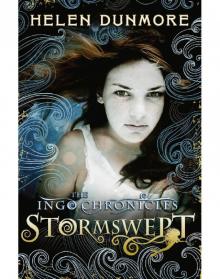 The Ingo Chronicles: Stormswept
The Ingo Chronicles: Stormswept The Deep
The Deep The Crossing of Ingo
The Crossing of Ingo Birdcage Walk
Birdcage Walk Glad of These Times
Glad of These Times Counting the Stars
Counting the Stars With Your Crooked Heart
With Your Crooked Heart Burning Bright
Burning Bright House of Orphans
House of Orphans Mourning Ruby
Mourning Ruby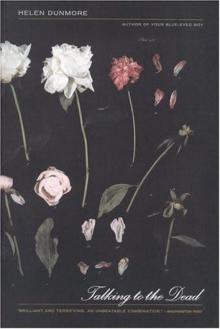 Talking to the Dead
Talking to the Dead Exposure
Exposure Ingo
Ingo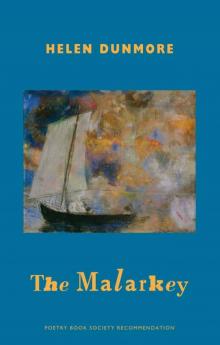 The Malarkey
The Malarkey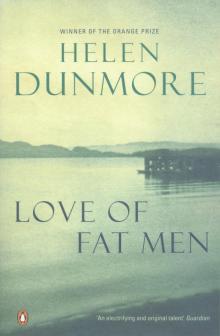 Love of Fat Men
Love of Fat Men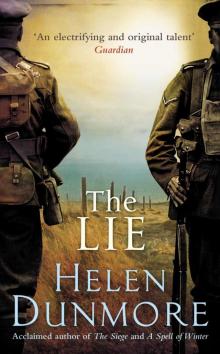 The Lie
The Lie The Siege
The Siege Inside the Wave
Inside the Wave Counting Backwards
Counting Backwards The Land Lubbers Lying Down Below (Penguin Specials)
The Land Lubbers Lying Down Below (Penguin Specials)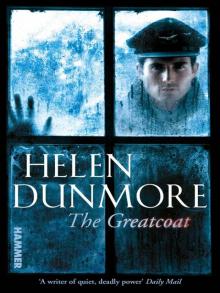 The Greatcoat
The Greatcoat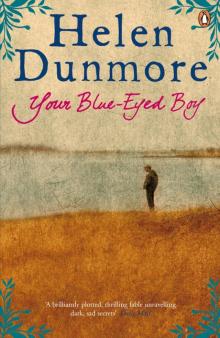 Your Blue Eyed Boy
Your Blue Eyed Boy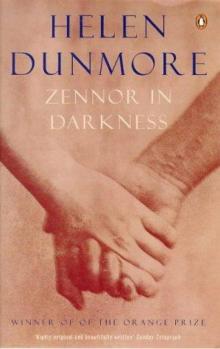 Zennor in Darkness
Zennor in Darkness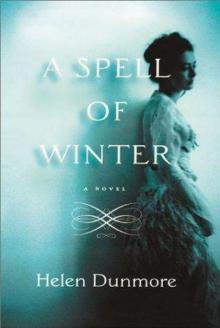 Spell of Winter
Spell of Winter Out of the Blue: Poems 1975-2001
Out of the Blue: Poems 1975-2001 Tide Knot
Tide Knot The Betrayal
The Betrayal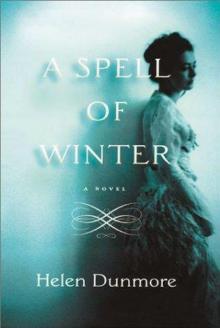 A Spell of Winter
A Spell of Winter Out of the Blue
Out of the Blue The Tide Knot
The Tide Knot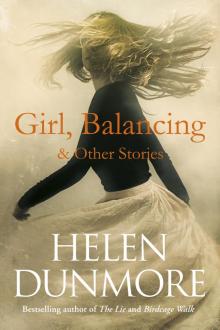 Girl, Balancing & Other Stories
Girl, Balancing & Other Stories Betrayal
Betrayal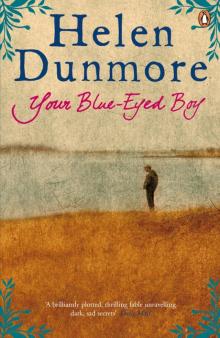 Your Blue-Eyed Boy
Your Blue-Eyed Boy